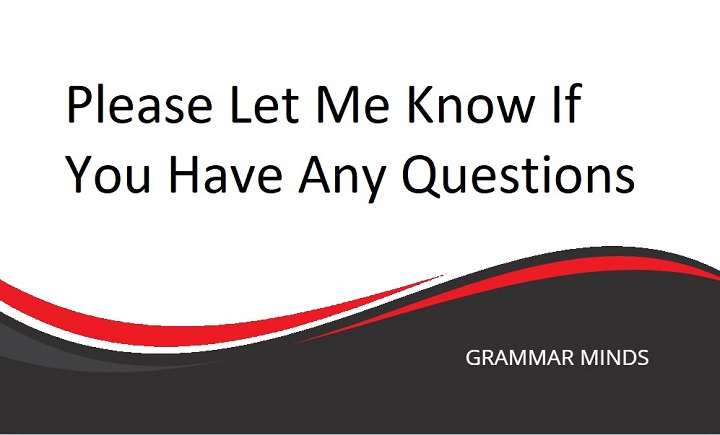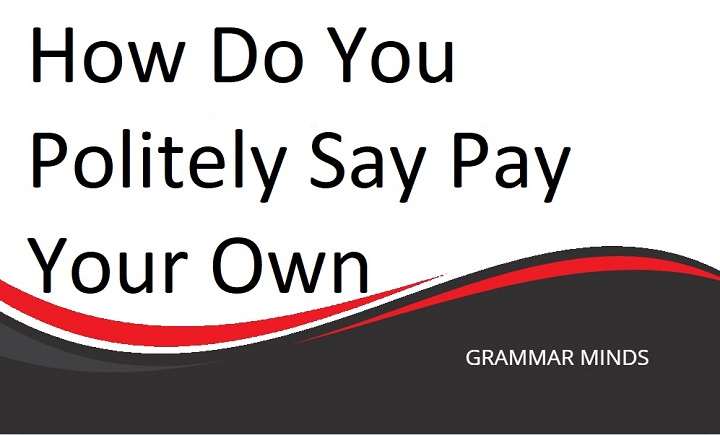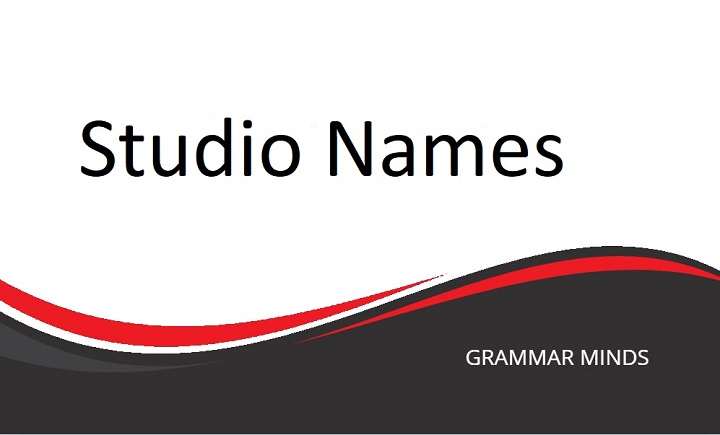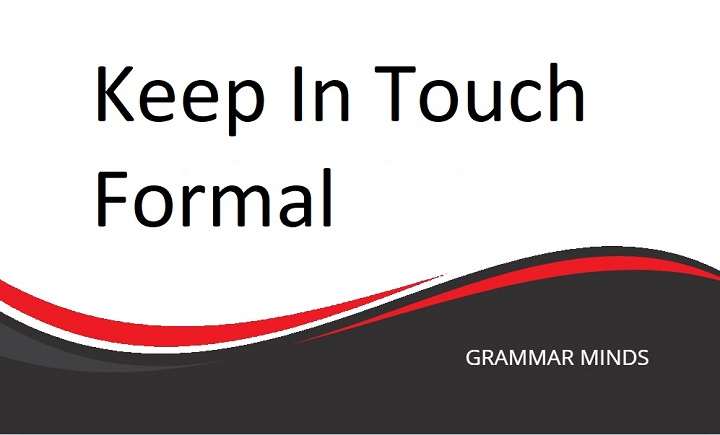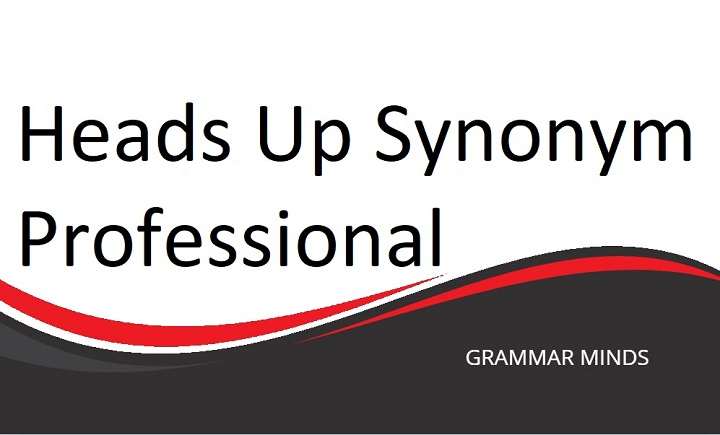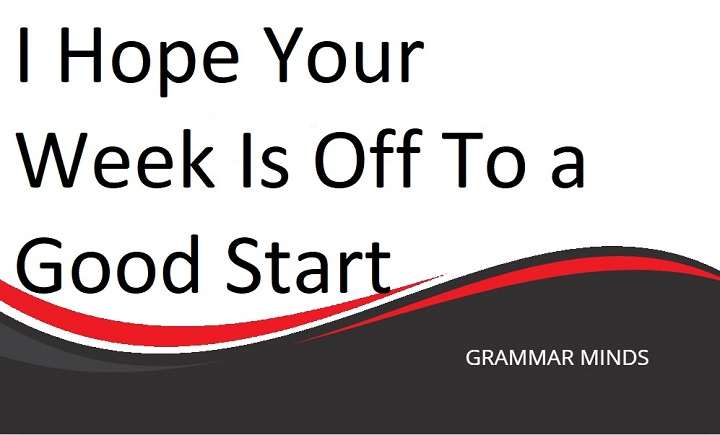In today’s fast-paced communication, especially in professional settings, the phrase “Please let me know if you have any questions” is often used to close emails, presentations, and even casual conversations. While it’s a polite and grammatically correct phrase, there’s no denying that using it repeatedly can become tiresome, and it may make your communication feel less engaging or original.
Do you find yourself using the phrase “Please let me know if you have any questions” repeatedly?
Have you grown tired of this repetitive expression when communicating in your professional or personal life?
Don’t worry! We’ve compiled a handy list of alternative phrases that you can use to mix things up and sound more varied in your conversations. Whether you’re looking for formal alternatives for your business emails or casual variations for informal chats, you’ll find something here that will help diversify your language.
Other Ways to Say “Please Let Me Know If You Have Any Questions”
Here are some fresh and creative alternatives that you can use instead of “Please let me know if you have any questions.”
Feel free to reach out if you need further clarification.
I’m happy to answer any questions you may have.
Don’t hesitate to get in touch if anything is unclear.
Let me know if there’s anything I can help with.
I’m here to help if you need any assistance.
Please don’t hesitate to ask if you need more information.
Should you require any further information, please feel free to contact me.
If anything is unclear, don’t hesitate to ask for more details.
I’m available for any questions you might have.
Feel free to ask if you need any more details.
Key Notes
The phrase “Please let me know if you have any questions” is grammatically correct and suitable for both formal and informal situations. However, it can sometimes feel a bit basic, especially when used frequently in professional emails or conversations.
- You can use “Feel free to reach out if you need further clarification” for formal situations, especially in emails or business communications.
- “I’m happy to answer any questions you may have” is a more casual and friendly alternative that works well in informal conversations.
- “Don’t hesitate to get in touch if anything is unclear” is a great option for both formal and informal contexts, offering a slightly more approachable tone.
Keep reading to discover how to use these phrases in both formal and informal situations, and see real-life examples of how they can be applied.
Feel Free to Reach Out if You Need Further Clarification
Usage:
If you’re looking for a more formal way to say “Please let me know if you have any questions,” try using “Feel free to reach out if you need further clarification.” This alternative adds a touch of sophistication, making it ideal for professional environments such as business emails, project proposals, or meetings.
Example (in an email):
Dear Sarah,
Thank you for your inquiry regarding the project timelines. I have attached a detailed schedule for your reference.
Feel free to reach out if you need further clarification.
Best regards,
John
I’m Happy to Answer Any Questions You May Have
Usage:
A more informal alternative to “Please let me know if you have any questions” is “I’m happy to answer any questions you may have.” This phrase works well in conversations where you are speaking to people you are already familiar with, such as friends, colleagues, or acquaintances.
Example (in conversation):
Hey Mike,
Thanks for helping me out with the report. I’m happy to answer any questions you may have as you review the document.
Talk soon,
Anna
Don’t Hesitate to Get in Touch If Anything Is Unclear
Usage:
This phrase is versatile and works well in both formal and informal settings. Whether you’re writing a formal email or chatting with a colleague, “Don’t hesitate to get in touch if anything is unclear” offers a more approachable and friendly alternative to “Please let me know if you have any questions.”
Example (in an email):
Hi Emily,
Thank you for reviewing the presentation slides. Don’t hesitate to get in touch if anything is unclear before tomorrow’s meeting.
Best regards,
Jessica
Let Me Know If There’s Anything I Can Help With
Usage:
This phrase is a more casual version of “Please let me know if you have any questions.” It works well in informal email conversations or chats with coworkers, offering a friendly tone that’s still professional.
Example (in conversation):
Hey Claire,
I sent over the updated file earlier today. Let me know if there’s anything I can help with!
Cheers,
Tom
I’m Here to Help If You Need Any Assistance
Usage:
This phrase is perfect for offering support in both professional and informal contexts. “I’m here to help if you need any assistance” signals your willingness to assist without sounding overly formal.
Example (in an email):
Hi David,
I’ve attached the documents you requested. I’m here to help if you need any assistance.
Best,
Megan
Please Don’t Hesitate to Ask If You Need More Information
Usage:
This phrase is great for more formal emails and communications. It’s a professional way to offer further assistance, similar to “Please let me know if you have any questions” but with a more polished tone.
Example (in an email):
Dear Jonathan,
Thank you for attending the meeting today. Please don’t hesitate to ask if you need more information regarding the next steps.
Best regards,
Sophia
Should You Require Any Further Information, Please Feel Free to Contact Me
Usage:
This phrase is often used in business or formal correspondence. It’s a slightly more formal way to offer assistance and can be used when you want to maintain a professional tone.
Example (in an email):
Dear Dr. Bennett,
I’ve attached the results of our recent study. Should you require any further information, please feel free to contact me at your convenience.
Kind regards,
Dr. Andrews
If Anything Is Unclear, Don’t Hesitate to Ask for More Details
Usage:
“If anything is unclear, don’t hesitate to ask for more details” is an excellent option for both formal and informal conversations. It’s direct, helpful, and ensures the recipient feels comfortable reaching out.
Example (in an email):
Hello Emma,
Here’s the budget breakdown for the project. If anything is unclear, don’t hesitate to ask for more details before we finalize it.
Regards,
Mark
I’m Available for Any Questions You Might Have
Usage:
This phrase works well in both professional and casual conversations. It’s simple, direct, and lets the recipient know you’re open to questions.
Example (in conversation):
Hi Jane,
Thanks for taking a look at the presentation. I’m available for any questions you might have!
Best,
Alex
Feel Free to Ask If You Need Any More Details
Usage:
A casual yet professional alternative, “Feel free to ask if you need any more details” is suitable for both formal and informal emails, chats, and meetings.
Example (in conversation):
Hey Lisa,
I’ve attached the agenda for tomorrow’s meeting. Feel free to ask if you need any more details.
Talk soon,
Tom
Is It Correct to Say “Please Let Me Know If You Have Any Questions”?
Yes! “Please let me know if you have any questions” is grammatically correct and suitable for both formal and informal settings. It’s a versatile phrase that can be used in professional emails, conversations with colleagues, or casual chats with friends.
That being said, using synonyms like the ones we’ve listed above will help you mix up your language and sound more varied in your communication. This is especially helpful if you’re engaging with the same group of people often or writing numerous emails a day.
You can also try slight variations of this phrase, like the following:
- “Please feel free to ask any questions.”
- “Let me know if you need further information.”
- “Feel free to get in touch with any concerns.”
Also Read
Synonyms for “Let Me Know”: A Comprehensive Guide to Diversifying Your Communication
In conclusion, “Please let me know if you have any questions” is a perfectly acceptable and grammatically correct phrase, whether you’re using it in a formal or informal setting. However, the alternative phrases provided in this article will help you diversify your vocabulary and communicate more effectively in different contexts.
By mixing up your language, you can keep your conversations and emails fresh, engaging, and more tailored to your audience, ensuring your communication remains professional and personable.

